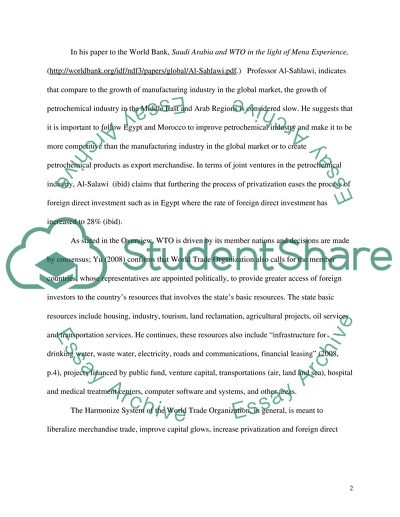Cite this document
(“The Impact of the World Trade Organisation (WTO) on the Sustainability Essay”, n.d.)
The Impact of the World Trade Organisation (WTO) on the Sustainability Essay. Retrieved from https://studentshare.org/miscellaneous/1546228-the-impact-of-the-world-trade-organisation-wto-on-the-sustainability-of-competitiveness-of-the-petrochemical-industry-in-saudi-arabia
The Impact of the World Trade Organisation (WTO) on the Sustainability Essay. Retrieved from https://studentshare.org/miscellaneous/1546228-the-impact-of-the-world-trade-organisation-wto-on-the-sustainability-of-competitiveness-of-the-petrochemical-industry-in-saudi-arabia
(The Impact of the World Trade Organisation (WTO) on the Sustainability Essay)
The Impact of the World Trade Organisation (WTO) on the Sustainability Essay. https://studentshare.org/miscellaneous/1546228-the-impact-of-the-world-trade-organisation-wto-on-the-sustainability-of-competitiveness-of-the-petrochemical-industry-in-saudi-arabia.
The Impact of the World Trade Organisation (WTO) on the Sustainability Essay. https://studentshare.org/miscellaneous/1546228-the-impact-of-the-world-trade-organisation-wto-on-the-sustainability-of-competitiveness-of-the-petrochemical-industry-in-saudi-arabia.
“The Impact of the World Trade Organisation (WTO) on the Sustainability Essay”, n.d. https://studentshare.org/miscellaneous/1546228-the-impact-of-the-world-trade-organisation-wto-on-the-sustainability-of-competitiveness-of-the-petrochemical-industry-in-saudi-arabia.


